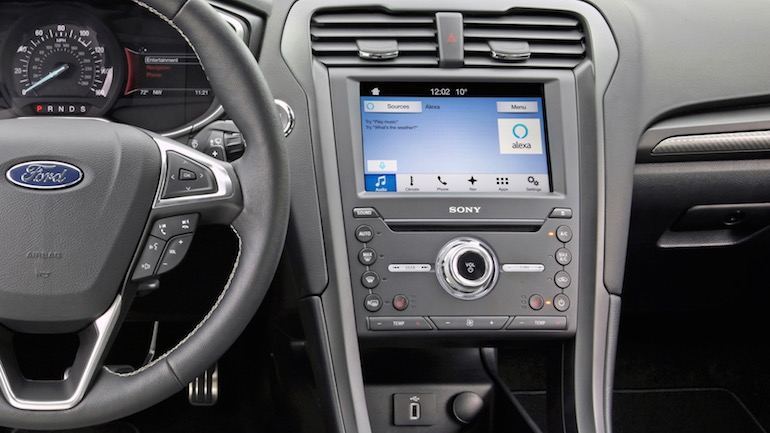Amazon's Alexa won the CES battle, but faces a tough war


Ford cars will soon offer Alexa, but also competitive agents.
Amazon's Alexa voice agent has been the biggest surprise hit for the mammoth online retailer since it moved into the cloud storage business with Amazon Web Services. Alexa showed up at CES 2017 in full force. As Larry Dignan notes, the agent picked up friends in high places, including Ford, Whirlpool, Dish Network, Huawei, Hyundai, Mattel, Lenovo, LG, Samsung and ADT.
CES 2017
That shouldn't be a surprise to those who noted the rise of Alexa at CES 2016. The disembodied voice agent began its integration march with products from smaller companies and startups, including VoIP vendor Ooma, item finder vendor TrackR, and Bluetooth speaker/digital message board vendor Invoxia. And that was all before Alexa's strong year-end showing.
Amazon's progress with Alexa has caused some to proclaim it the winner of the voice wars. Without question, the online retailer has grabbed an early lead in the voice agent space beyond smartphones although, as I mentioned in my column on Microsoft's 2017 priorities, some of this has been driven by necessity given Amazon's fiery failure in the smartphone space.
Despite Amazon's early lead and aggressive integration, though, it's at a disadvantage when it comes to distribution, user experience and knowledge graph.
Take cars, for example. Amazon may have announced a few automotive partners at CES. But both Apple and Google have struck integration deals with virtually every major car company that are putting Siri and Google Assistant on wheels. Or TV, where market leader Samsung will certainly prioritize its Viv-derived agent and Siri, Cortana and Google Assistant will find their way in via products such as Apple TV, Xbox One and Sony televisions.
At CES, Google put the industry on notice that it intends to make up ground quickly in the voice agent race in 2017, using its massive investments in artificial intelligence to extend a better experience. Amazon may sell Go games, but Google has mastered them. Future versions of Google Assistant may not even need to hear what you're saying.
Indeed, far from the argument that consumers' associations with Apple's and Google's smartphones will hinder their voice agents elsewhere, consumers are far more likely to want a familiar and seamless interface across smartphone, home devices and the car. The aggregate number of devices that have announced Amazon integration are a small fraction of the number of Android phones that use Google's suite of services and are primed to receive more exposure to Google Assistant as a natural part of the upgrade cycle. And while Alexa has been hailed as a harbinger of a post-app economy, there's great potential in integrating conversational interfaces for some tasks and screen interfaces for others. Here again, Amazon is far behind.
Alexa is great for Amazon. It has allowed the company to make an end-run around the major smartphone OS platforms to sneak a portal for purchasing and content into emerging smart device classes. But AI-driven voice interfaces remain in their infancy. Amazon focuses on the long game, but its competitors are fueling up for a decades-long journey.
Video: Amazon Go imagines the future of grocery stores